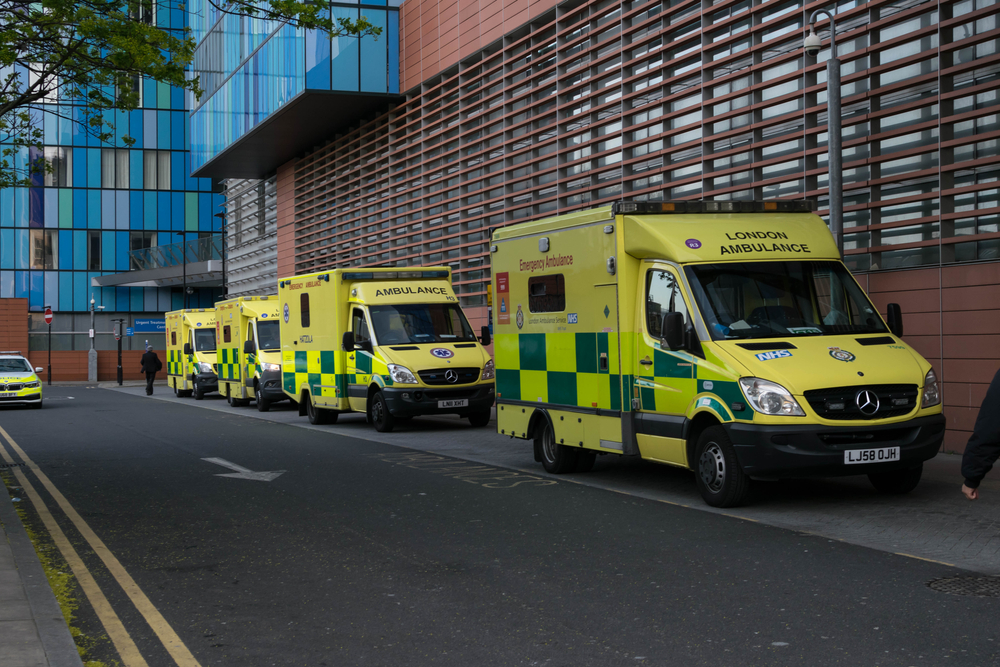While Rishi Sunak flies around the country claiming to be spending ‘record amounts’ on the NHS, NHS England has been increasingly cracking the whip over Integrated Care Boards (ICBs) and trusts, seeking to squeeze down the estimated £3bn deficit for 2024/25.
The underlying problem is that this financial year real terms funding for England’s NHS, after inflation, is increasing – but by just half of one percent (i.e. rising just £5,000 for every £1 million.)
This is well short of the 3-4 percent real terms annual increase needed to keep pace with the needs of an ageing population, rising drug costs, new technology and the need to maintain and renew crumbling buildings and equipment.
The financial pressure worsens as NHS England demands that ICSs not only make ends meet but also deliver improved performance. Austerity is back with a vengeance, and the public is still not being told what the impact of this will be.
For ICBs the problem has been compounded by NHS England’s 3-month delay in sending out the guidance on planning for the coming financial year, which is normally sent out just before Christmas. They have now made this worse by their belated refusal to accept many of the revised plans … and issuing fresh guidance 8 weeks into the 2024/25 financial year, telling many ICBs their plans are “unaffordable”.
To make matters worse still, NHSE, like Robin Hood in reverse, are once again offering cash incentives for the ICBs that are already best placed to deliver a balanced budget, coupled with penalties for those that are struggling to address hefty deficits, just like they did with “incentives” to reduce A&E waiting times.
ICSs that are able to set a breakeven or surplus plan will be given a capital allocation bonus: ICSs that set a deficit plan will see their capital allocation reduced. This latest bright idea is explained as an effort to prevent trusts in deficit effectively spending ‘more than their fair share’: but it ignores the complex factors that mean some areas are faced with bigger problems than others, and drag down those that were already facing the biggest challenge.
While there have been no public statements from NHSE on the scale of the deficits, the HSJ has calculated the £3 billion figure having seen financial returns from two-thirds of England’s 42 ICBs, and warns these are far worse than they were this time last year.
Further plans for “savings” seem likely to lead to cuts in planned investment, raids on capital (that should be spent on repairs, replacing equipment and expanding facilities) and job losses.
So far there is insufficient information to judge what the impact could be on the availability and quality of patient care. This could be one factor in Sunak opting to go for an early election, dumping the ticking timebomb of a worsening NHS crisis on the next government.
“All available funding has been allocated to systems and the plans proposed and agreed by systems and providers must be delivered. […] Any system that fails to deliver on its financial plans will necessarily be subject to immediate nationally imposed spending restrictions.”
All but a lucky few ICBs have already revised their plans once, having initially projected much higher deficits adding up to £6bn. Under pressure from NHSE they resubmitted plans that come closer to break-even: but they all hinge on even bigger and less plausible assumptions of “efficiency savings.”
Several ICBs, and their local trusts have already had to drop or reverse plans to grow the NHS workforce in order to contain spending on agency and locum staff.
The new HSJ figures are in line with previous Lowdown warnings of the situation facing health systems coming into the current year 2024/25. As we said on May 10:
“To judge from their published papers (as of May 9) ten out of the 23 ICBs in our survey are set for deficits totalling up to £1.24 billion, and ranging from £37.5 million to £298 million, with none of the remaining 13 explicitly forecasting a break-even.”
However Lowdown analysis has been impeded more and more by the implicit or explicit decisions taken by a growing number of ICBs (and trust boards) to discuss their financial situation – and potential savings – in private session behind closed doors.
We now have 25 working days of ‘purdah’ before the election, in which the NHS is required to maintain a neutral stance, and cannot engage in any party political campaigning or activity: this includes publishing any material that could be seen as politically biased, and in practice means it is even harder to obtain any information on what is happening or planned.
As the financial situation worsens we can expect the shroud of secrecy to be used extensively. Local communities and health staff can’t fight back against threats that they are unaware of: so a key demand on a new government must be to open up genuine accountability by restricting private sessions of ICB and trust boards to discussing genuinely confidential matters such as contracts, conduct and performance of individuals – and requiring all financial plans to be published and discussed in public.
Dear Reader,
If you like our content please support our campaigning journalism to protect health care for all.
Our goal is to inform people, hold our politicians to account and help to build change through evidence based ideas.
Everyone should have access to comprehensive healthcare, but our NHS needs support. You can help us to continue to counter bad policy, battle neglect of the NHS and correct dangerous mis-infomation.
Supporters of the NHS are crucial in sustaining our health service and with your help we will be able to engage more people in securing its future.
Please donate to help support our campaigning NHS research and journalism.


